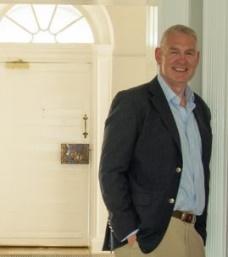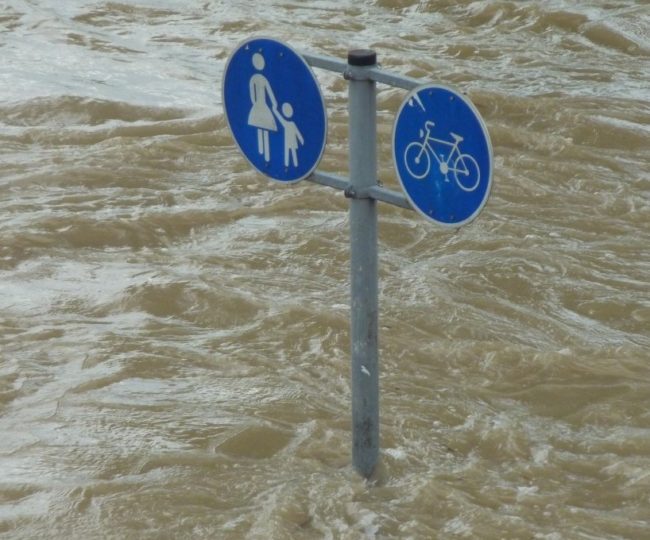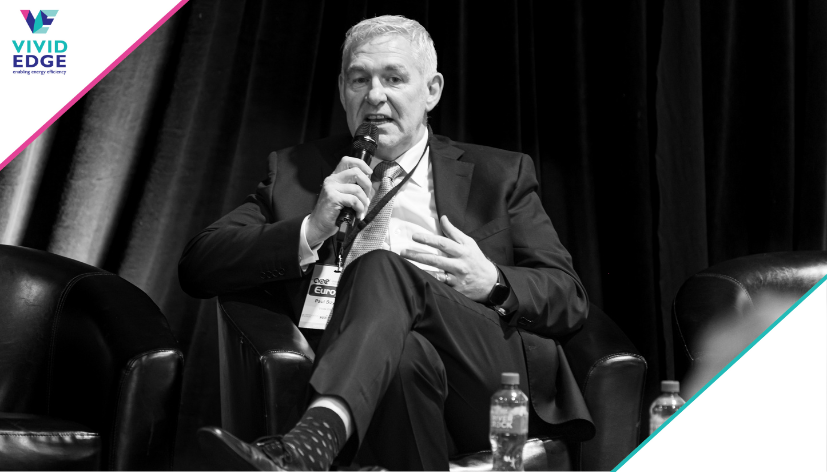Extreme Weather – So how did you fare?
By Paul Boylan

Between the floods, the frost and snow, the hurricanes and the heat waves, we have experienced some of the most exceptional weather conditions ever seen in Ireland, Europe and beyond in the last 12 months. Whilst some say that mother earth is “realigning” and natural disasters simply occur on a cyclic basis, other suggest that an apocalypse is imminent. My sense however is that people get it and are generally accepting that climate change is real and that we need to do something about it. The problem however is that, the “doing something about it” appears to be a little bit more about “changing and adapting” rather than physically doing anything.
How did you fare last summer? We have all witnessed the ill effects of climate change across many aspects of society, however the impact to commerce is becoming increasingly prevalent, especially in 2018. According to the Harvard Business review, the unusually warm winter temperatures across Europe and the U.S. last year triggered shortfalls in sales, caused store closures, and resulted in job cuts and I ultimately wonder what the price tag will be for 2018.
Although weather can sometimes have a positive influence on business, the chances are that recent weather events will more likely have had a negative impact on the company’s bottom line.
We have seen how monster rain and severe snowstorms had an immediate impact on roads, infrastructure, schools, hospitals etc. not to mention considerably higher associated heating costs, whilst during the summer, many offices, data-centres, retail facilities and so on, were exposed to increased operational risk as well as significantly higher cooling costs.
Spare a thought for the agri-food sector where I fear the absence of growth due to an extended bitter winter, followed by uncharacteristically high summer temperatures and water restrictions will be harder felt in the coming months. Climate change has truly made it into our backyard.
So what’s next?
It appears that extreme weather event will more become a common feature in 21st century business. The bad news is that things are not improving. According to the UNDP Emissions Gap report (2018) global CO2 emissions from energy increased in 2017 after three years of stagnation. Reports suggest that this will result in increased climate change and it is likely that the socio-economic costs will continue to escalate and that everyone will have to pay in some form or other at some stage, whether it’s increased taxes, levies, utility charges, insurance costs, business interruption, material damage or personal loss etc.
Climate Change is nothing new. The Earth’s climate has always been in a state of transition. The problem is however that the rate of change in the Earth’s climate is now being largely influenced and accelerated by mankind. This is simply unsustainable. The increased exploitation of natural resources, consumption of energy and burning of fossil fuels is causing all sorts of problems at a global level. Such global phenomena, amongst other things, include global warming, rise in sea levels, ice mass loss, and glacial shifting across the north and south poles, soil degradation, flooding, desertification, biodiversity impacts and extreme weather events. All of the Earths eco-systems are vulnerable.
As global energy consumption continues to increase, with fossil fuels remaining the dominant source, it is likely that society will have to adapt to more volatile environments, consuming more energy and creating more emissions in doing so. Isn’t it ironic, that an increased consumption of energy is both a “contributor to” and “result of” climate change!
Energy efficiency is widely acknowledged as one of the most effective and expedient ways to reduce consumption in fossil fuel derived energy delivering multiple economic, social and environmental benefits. In some arenas, “energy efficiency” is considered to be the “latest energy source” however in 2014, the International energy agency re-framed it from being a ‘hidden fuel’ to being the ‘first fuel’. Energy efficiency alone will not stop climate change however it certainly can slow it down as we transition to renewable energy sources.
Nowadays, energy efficiency solutions do more than save energy costs directly. They also insulate businesses, hedging them in part from market disruptions, price shocks that can arise from the vagaries of weather and natural/man-made disruptions to the energy system. In almost all cases energy efficient alternatives will not only deliver sustained energy savings and reduced emissions but will likely result in increased productivity, improved resilience and reduced maintenance.
The problem with energy efficiency is that typically investment justification revolves exclusively around the fiscal savings i.e. the payback, way too often failing to consider the indirect benefits. Even when a company has abundant capital reserves, many costs and benefits attributed to the measure are often overlooked.
When entertained, capital expenditure in energy efficiency is usually limited, is lowest in terms of priority, is painfully restricted to within unreasonable payback windows and often ignoring the fact that it was already necessary to replace with something.
The current cost of energy may not always provide sufficient justification to implement an energy efficiency alternative however, setting aside the market volatility, it is inevitable that the cost of fossil fuel derived energy will increase in the coming years. Furthermore, whilst remaining remarkably resilient, the depletion of fossil fuel reserves is imminent and when these reserves do actually run out, we can only hope that alternative sources are in place.
Industrial end-use energy efficiency includes a broad range of energy-efficient technologies and management practices that can be implemented across all sectors to reduce energy consumption. Examples that illustrate the diversity of technologies and practices include advanced electric motors and drives, high efficiency refrigeration systems, high efficiency boilers, waste heat recovery, energy efficient lighting solutions and controls, modernisation or replacement of process equipment, improved operating performance through the use of automation (sensors and controls), and implementation of systematic energy management systems.
Energy Efficiency Considerations
When speculating on energy efficiency, it is important to consider
- Life Cycle Costs (Current and future utility costs, maintenance requirements, life cycle replacements)
- Indirect as well as direct benefits (Reactive maintenance, interactive effects i.e. energy, maintenance savings on other equipment, carbon taxes)
- Intangible as well as the tangible attributes (Reduced emissions, profile, sales, CSR/ESG, staff etc.)
- Additional efficiency option cost on top of the original requirement.
Over the last couple of years, there has been increased media attention, flagging concerns on environmental sustainability, climate change, global warming, resource efficiency and of course energy consumption however in the time that it has taken me to write this brief article
> 16,424,786 MWh of energy (equivalent to 9.6 million barrels of oil) have been consumed
> 3.8 million TCO2 have been produced
Irrespective of your margins, an inefficient operation costs you money, increases wear and tear on your operating equipment, places unnecessary pressure on the grid and is harmful to the environment.
If capital is a major challenge, consider alternatives. Talk to us. There is nothing worse than operating inefficiently and we can help.
Paul Boylan. MSc BSc (Eng) CEng MIEI CMVP CEM CEA
Vivid Edge – Technical Director and Co-Founder
email: pboylan@vividedge.ie



